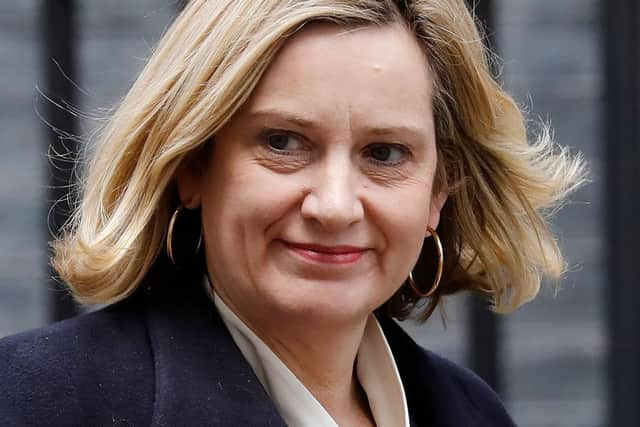Brexit: Theresa May risking resignations as she delays vote again
Fresh divisions have opened up within the Conservative Party over a vote this week on whether to delay Brexit if no deal can be reached by mid-March.
Cabinet ministers Amber Rudd, Greg Clark and David Gauke warned the Prime Minister at the weekend that there is a clear majority in Parliament in favour of extending the Article 50 withdrawal process rather than to “crash out” in a “disastrous” no-deal.
Advertisement
Hide AdAdvertisement
Hide AdJacob Rees-Mogg, the chairman of the pro-Brexit European Research Group of Tory MPs, suggested ministers who failed to back the government should quit.


“Everybody in the Conservative Party stood on a manifesto saying that we would leave the EU, we would leave the customs union, the single market and that no deal was better than a bad deal,” Mr Rees-Mogg told the BBC’s Pienaar’s Politics programme.
“Somebody who at the very last minute is saying they no longer agree with that is not abiding by what they said to their voters.”
He added: “Ministers who vote against the government are no longer ministers, that is our constitutional tradition.
“The act of voting against the government is the act of resignation. You can’t have it both ways; you cannot be in the government and against the government.
“The convention of collective responsibility is written deeply into our constitution and I wouldn’t have thought that any minister in honour could vote against the government without recognising that was a resignation.”
Environment Secretary Michael Gove insisted talks to break the deadlock over the Irish border backstop were making progress, and said it would be a “mistake” for MPs to try delay Brexit.
But he rejected calls for Ms Rudd and her colleagues to be sacked. “When we are facing the difficult choices that we have, we can try and say ‘Aha’ and heresy hunt and say ‘You are wrong here’ or ‘You are wrong there’,” Mr Gove said.
“I think that is counter-productive... When you have colleagues who have expressed concerns, it is important to listen to those concerns and seek to reconcile them.”